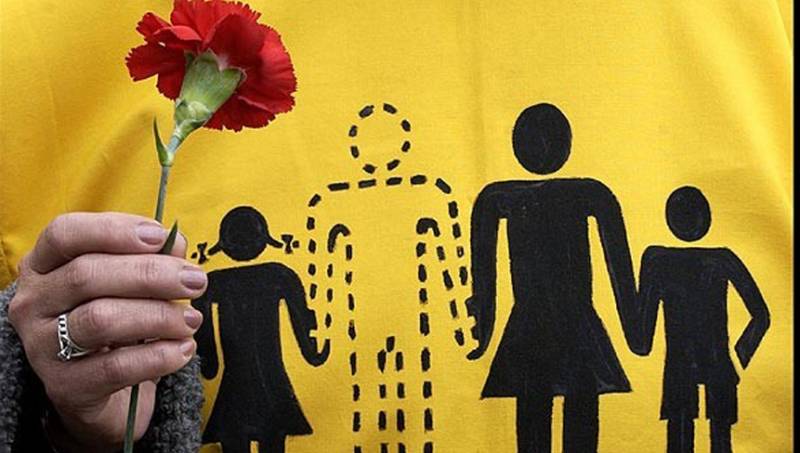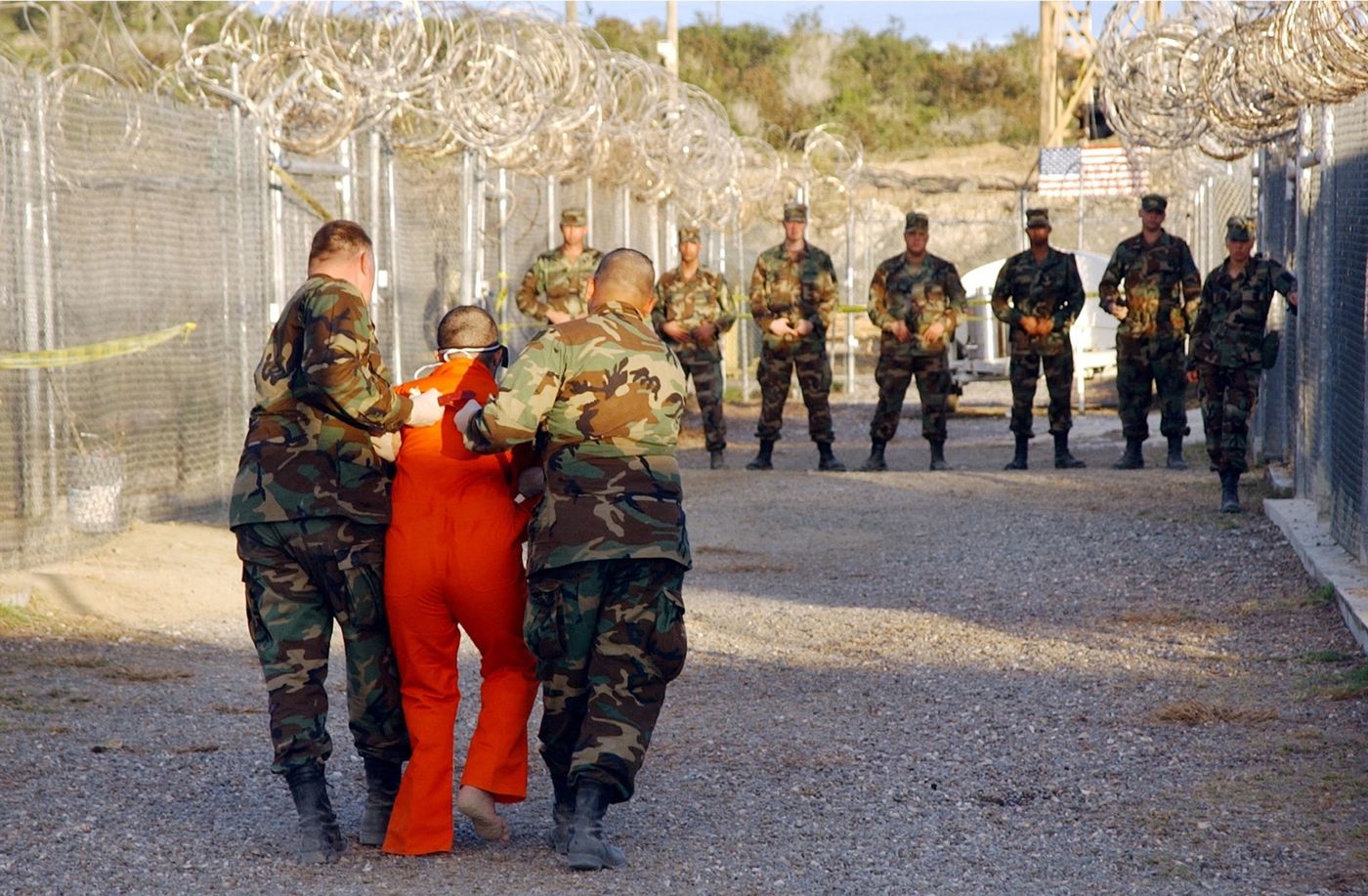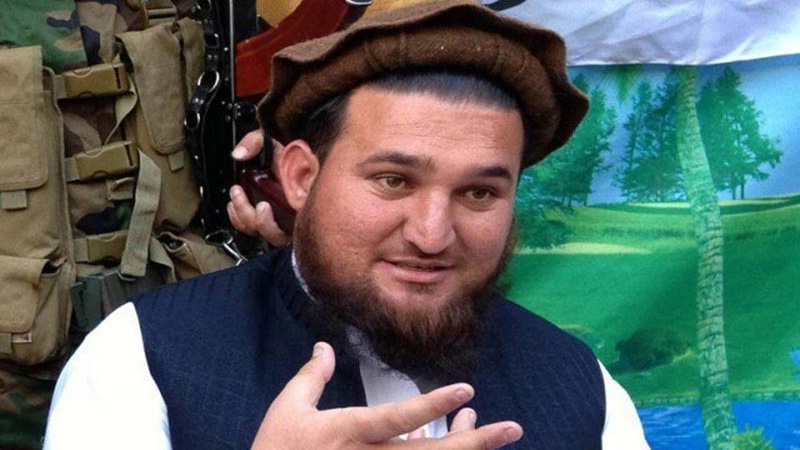
Pakistan today finds itself a simmering cauldron of hate, bigotry and intolerance. A certain narrative is being aggressively pursued by the state and those who oppose it are being forcibly silenced by being detained and put outside the ambit of the law. These ‘enforced disappearances’ have been in vogue since the turn of the century, but have of late emerged as a very convenient tool of repression.
As this dangerous trend picks pace, it is pertinent to look at how and when the state decided it could act with such impunity and get away with detaining its own citizens for merely speaking their mind.
Post 9/11, the US’s decision to deny detainees of the ‘War on Terror’ Prisoner of War (POW) status was a contravention of the Geneva Conventions and was a terrible blow to human rights and democracy around the world. Al-Qaeda and Taliban fighters as well as terror suspects picked up from Afghanistan and Pakistan were taken to ‘black sites’; top secret prisons used by the CIA in foreign countries to detain and interrogate suspects, where they were denied legal counsel and kept in custody without being charged for years and subjected to inhuman torture techniques to extract ‘confessions’.
People suspected of being Al-Qaeda or Taliban fighters or informants were picked up overnight and shipped off to these ‘black sites’, which could be as far out as Poland and confined for months without formal charge and subjected to crude torture techniques including waterboarding. Some were released after prolonged incarceration and yet were never formally charged. Many died during detention because they could not bear being subjected to the ‘enhanced interrogation’ techniques. Some took their own lives. Many more simply vanished off the face of the earth.

The US built up public hysteria and garnered support for its actions by telling the public that these black sites were hosting the “most dangerous, best trained, vicious killers on the face of the earth”, according to the then US Secretary of State Donald Rumsfeld.
A global phenomenon in the backdrop of War on Terror
This brazen violation of human rights, despite international outcry, nonetheless found many willing participants. Afghanistan, which back then had no legal system and was at the mercy of the US, was obviously going to follow suit. The Central Asian Republics (CARs), some of the world’s most repressive dictatorships, also fell in line. Pakistan, then ruled by a despot, duly obliged.
Such extensive powers with little oversight were obviously liable to abuse. Because the US itself was involved, it was only a matter of time before other countries began to use that blueprint to exercise their power over a populace that they wanted to exert more control over and felt needed to be brought to heel, knowing that countries like the US, who had long been the flag-bearers of human rights, would conveniently look the other way on this issue as a ‘reward’ to these countries for their support during the war on terror.
Amnesty International, in a report from 2006, claimed that US rewards worth millions of dollars led to terror arrests and human rights abuses in Pakistan. Amnesty alleged Musharraf and his government acted as bounty hunters on the US government’s behalf and turned over people of foreign nationalities, and Pakistani nationals, to the US for transport to black site prisons. The then president and military dictator Pervez Musharraf unabashedly admits in his memoirs ‘In The Line of Fire’: “We have earned bounties totaling millions of dollars”.

Failure of civilian governments to change the norm that this crime had become
Musharraf’s ouster in 2008, and the arrival of a democratic government, unfortunately did not herald change. As terrorism posed a serious threat to the writ of the state, law enforcement agencies were given sweeping powers to deal with those who had risen against the state. Amendments were made to the existing Anti-Terrorism Act, the establishment of Military Courts followed in the wake of the APS massacre in 2014, and a draconian Cyber Crime Bill was also passed in 2016.
These laws, although empowering the military to fight terrorism, were at the same time ambiguous in their wording, sweeping and all-encompassing in their scope, where technically any and every Pakistani could fall under their ambit.
Repressive states like Pakistan have in recent years begun to use such laws to tighten the noose around a populace that, over time, especially with the dissemination of information over the internet and ready access to social media platforms, has become more aware of its standing in the world and has begun to raise its voice and ask tough questions, at least as far as the country’s foreign and internal policies are concerned.
Criticism from international human rights campaigners and organizations followed the passing of these laws, and their concerns over the misuse fell on deaf ears. It has now become clear that these laws were not only passed to fight terrorism, but also to repress the more vocal elements of society.
Dissent in Pakistan is not even defined
Dissent in Pakistan can mean anything, from wanting peace with our neighbors to demanding equal rights for minorities; from raising questions over the state’s handling of the insurgency in Balochistan to protesting the clout enjoyed by the military in the national discourse or their share of the country’s budget. The state has become increasingly impatient with any and all dissent of late, and has decided to clamp down on all those who express it.
The state has made clear that there is no room for opposition, as it pursues its mind boggling social experiments and engineers hardened criminals such as Ehsanullah Ehsan into ‘reformed patriots’ and allows proscribed militant groups to contest general elections, and seeks to silence those who merely exercise their right to free speech.

In similar fashion to the US’s excesses post 9/11, those ‘picked up’ in Pakistan are denied legal representation. Those released have spoken in hushed tones of the torture they suffered, and that they, too, were expected to divulge information that they did not possess, which in Pakistan usually means to admit to working for India or Israel. Many are tried through military courts, basically kangaroo courts, where one’s guilt is pre-ordained. Thousands of Baloch nationalists have been missing for years, their families having resigned themselves to the worst, wanting nothing but closure.
Complacent media and complicit US
Media wings amenable to the state’s pressure are used to drum up support against those picked up, with the ‘blasphemy’ and ‘traitor’ cards commonly used against them. Their use also ensures that the accused, even if they are released, would have to keep a low profile for fear of their lives. Last year’s blogger abduction still rings fresh in the mind. Held without charge for months, the state, through their social media proxies, accused the bloggers of having committed blasphemy before finally releasing them. The courts then absolved the bloggers of any such crime. But the message had been sent.
The US has never officially condemned disappearances in Pakistan; it conveniently looks the other way when human rights of people in its ally states are being trampled upon. US-sponsored nation building has little credibility when it itself denied justice to the very people it was supposed to help.
The US’s decisions post-9/11 continue to haunt the world today. By denying prisoners of war humane treatment and encouraging its allies to do the same, it only emboldened perpetrators of human rights abuses in other countries. By stifling free speech using repressive measures as enforced disappearances followed by incarceration and torture of dissidents, countries like Pakistan are less free than ever before. Human rights and democracy have been set back decades.
One can only hope that some sense finally prevails; that the state ultimately realizes that its long standing policies have not borne fruit after all these years and that the rising dissent among the local population means that they, too, no longer stand by them. Heeding dissenting voices instead of muzzling them may do the state more good than harm.
Having been elected to the United Nations Human Rights Council just last year, Pakistan now also has a reputation to live up to. With how things are turning out, we will have a hard job keeping that façade up.
As this dangerous trend picks pace, it is pertinent to look at how and when the state decided it could act with such impunity and get away with detaining its own citizens for merely speaking their mind.
Post 9/11, the US’s decision to deny detainees of the ‘War on Terror’ Prisoner of War (POW) status was a contravention of the Geneva Conventions and was a terrible blow to human rights and democracy around the world. Al-Qaeda and Taliban fighters as well as terror suspects picked up from Afghanistan and Pakistan were taken to ‘black sites’; top secret prisons used by the CIA in foreign countries to detain and interrogate suspects, where they were denied legal counsel and kept in custody without being charged for years and subjected to inhuman torture techniques to extract ‘confessions’.
People suspected of being Al-Qaeda or Taliban fighters or informants were picked up overnight and shipped off to these ‘black sites’, which could be as far out as Poland and confined for months without formal charge and subjected to crude torture techniques including waterboarding. Some were released after prolonged incarceration and yet were never formally charged. Many died during detention because they could not bear being subjected to the ‘enhanced interrogation’ techniques. Some took their own lives. Many more simply vanished off the face of the earth.

The US built up public hysteria and garnered support for its actions by telling the public that these black sites were hosting the “most dangerous, best trained, vicious killers on the face of the earth”, according to the then US Secretary of State Donald Rumsfeld.
A global phenomenon in the backdrop of War on Terror
This brazen violation of human rights, despite international outcry, nonetheless found many willing participants. Afghanistan, which back then had no legal system and was at the mercy of the US, was obviously going to follow suit. The Central Asian Republics (CARs), some of the world’s most repressive dictatorships, also fell in line. Pakistan, then ruled by a despot, duly obliged.
Such extensive powers with little oversight were obviously liable to abuse. Because the US itself was involved, it was only a matter of time before other countries began to use that blueprint to exercise their power over a populace that they wanted to exert more control over and felt needed to be brought to heel, knowing that countries like the US, who had long been the flag-bearers of human rights, would conveniently look the other way on this issue as a ‘reward’ to these countries for their support during the war on terror.
Amnesty International, in a report from 2006, claimed that US rewards worth millions of dollars led to terror arrests and human rights abuses in Pakistan. Amnesty alleged Musharraf and his government acted as bounty hunters on the US government’s behalf and turned over people of foreign nationalities, and Pakistani nationals, to the US for transport to black site prisons. The then president and military dictator Pervez Musharraf unabashedly admits in his memoirs ‘In The Line of Fire’: “We have earned bounties totaling millions of dollars”.

Failure of civilian governments to change the norm that this crime had become
Musharraf’s ouster in 2008, and the arrival of a democratic government, unfortunately did not herald change. As terrorism posed a serious threat to the writ of the state, law enforcement agencies were given sweeping powers to deal with those who had risen against the state. Amendments were made to the existing Anti-Terrorism Act, the establishment of Military Courts followed in the wake of the APS massacre in 2014, and a draconian Cyber Crime Bill was also passed in 2016.
These laws, although empowering the military to fight terrorism, were at the same time ambiguous in their wording, sweeping and all-encompassing in their scope, where technically any and every Pakistani could fall under their ambit.
Repressive states like Pakistan have in recent years begun to use such laws to tighten the noose around a populace that, over time, especially with the dissemination of information over the internet and ready access to social media platforms, has become more aware of its standing in the world and has begun to raise its voice and ask tough questions, at least as far as the country’s foreign and internal policies are concerned.
Criticism from international human rights campaigners and organizations followed the passing of these laws, and their concerns over the misuse fell on deaf ears. It has now become clear that these laws were not only passed to fight terrorism, but also to repress the more vocal elements of society.
Dissent in Pakistan is not even defined
Dissent in Pakistan can mean anything, from wanting peace with our neighbors to demanding equal rights for minorities; from raising questions over the state’s handling of the insurgency in Balochistan to protesting the clout enjoyed by the military in the national discourse or their share of the country’s budget. The state has become increasingly impatient with any and all dissent of late, and has decided to clamp down on all those who express it.
The state has made clear that there is no room for opposition, as it pursues its mind boggling social experiments and engineers hardened criminals such as Ehsanullah Ehsan into ‘reformed patriots’ and allows proscribed militant groups to contest general elections, and seeks to silence those who merely exercise their right to free speech.

In similar fashion to the US’s excesses post 9/11, those ‘picked up’ in Pakistan are denied legal representation. Those released have spoken in hushed tones of the torture they suffered, and that they, too, were expected to divulge information that they did not possess, which in Pakistan usually means to admit to working for India or Israel. Many are tried through military courts, basically kangaroo courts, where one’s guilt is pre-ordained. Thousands of Baloch nationalists have been missing for years, their families having resigned themselves to the worst, wanting nothing but closure.
Complacent media and complicit US
Media wings amenable to the state’s pressure are used to drum up support against those picked up, with the ‘blasphemy’ and ‘traitor’ cards commonly used against them. Their use also ensures that the accused, even if they are released, would have to keep a low profile for fear of their lives. Last year’s blogger abduction still rings fresh in the mind. Held without charge for months, the state, through their social media proxies, accused the bloggers of having committed blasphemy before finally releasing them. The courts then absolved the bloggers of any such crime. But the message had been sent.
The US has never officially condemned disappearances in Pakistan; it conveniently looks the other way when human rights of people in its ally states are being trampled upon. US-sponsored nation building has little credibility when it itself denied justice to the very people it was supposed to help.
The US’s decisions post-9/11 continue to haunt the world today. By denying prisoners of war humane treatment and encouraging its allies to do the same, it only emboldened perpetrators of human rights abuses in other countries. By stifling free speech using repressive measures as enforced disappearances followed by incarceration and torture of dissidents, countries like Pakistan are less free than ever before. Human rights and democracy have been set back decades.
One can only hope that some sense finally prevails; that the state ultimately realizes that its long standing policies have not borne fruit after all these years and that the rising dissent among the local population means that they, too, no longer stand by them. Heeding dissenting voices instead of muzzling them may do the state more good than harm.
Having been elected to the United Nations Human Rights Council just last year, Pakistan now also has a reputation to live up to. With how things are turning out, we will have a hard job keeping that façade up.
